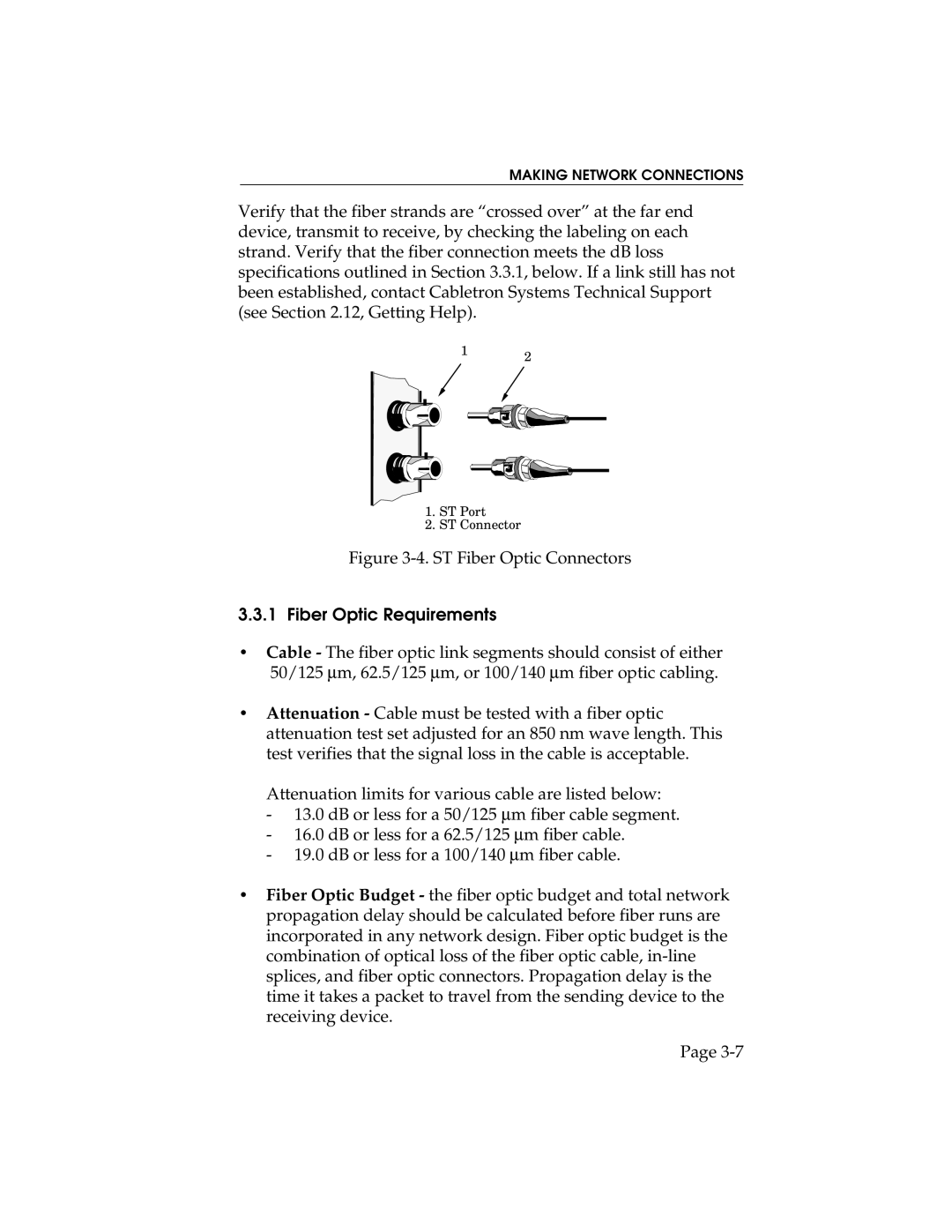
MAKING NETWORK CONNECTIONS
Verify that the fiber strands are “crossed over” at the far end device, transmit to receive, by checking the labeling on each strand. Verify that the fiber connection meets the dB loss specifications outlined in Section 3.3.1, below. If a link still has not been established, contact Cabletron Systems Technical Support (see Section 2.12, Getting Help).
1 2
1.ST Port
2.ST Connector
Figure 3-4. ST Fiber Optic Connectors
3.3.1 Fiber Optic Requirements
•Cable - The fiber optic link segments should consist of either 50/125 μm, 62.5/125 μm, or 100/140 μm fiber optic cabling.
•Attenuation - Cable must be tested with a fiber optic attenuation test set adjusted for an 850 nm wave length. This test verifies that the signal loss in the cable is acceptable.
Attenuation limits for various cable are listed below:
-13.0 dB or less for a 50/125 μm fiber cable segment.
-16.0 dB or less for a 62.5/125 μm fiber cable.
-19.0 dB or less for a 100/140 μm fiber cable.
•Fiber Optic Budget - the fiber optic budget and total network propagation delay should be calculated before fiber runs are incorporated in any network design. Fiber optic budget is the combination of optical loss of the fiber optic cable,
Page
